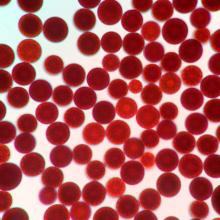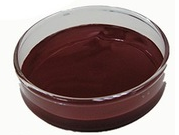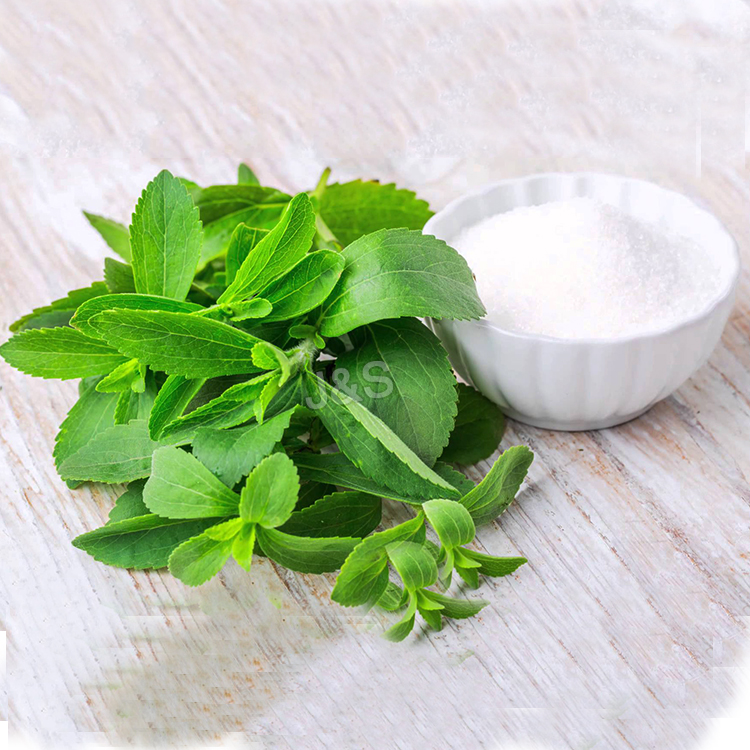Wholesale Price China Astaxanthin in Zambia
Wholesale Price China Astaxanthin in Zambia Detail:
[Latin Name] Haematococcus Pluvialis
[Plant Source] from China
[Specifications]1% 2% 3% 5%
[Appearance] Dark red Powder
[Particle size] 80 Mesh
[Loss on drying] ≤5.0%
[Heavy Metal] ≤10PPM
[Storage] Store in cool & dry area, keep away from the direct light and heat.
[Shelf life] 24 Months
[Package] Packed in paper-drums and two plastic-bags inside.
[Net weight] 25kgs/drum
Brief Introduction
Astaxanthin is a natural nutritional component, it can be found as a food supplement. The supplement is intended for human, animal, and aquaculture consumption.
Astaxanthin is a carotenoid. It belongs to a larger class of phytochemicals known as terpenes, which are built from five carbon precursors; isopentenyl diphosphate and dimethylallyl diphosphate . Astaxanthin is classified as a xanthophyll (originally derived from a word meaning “yellow leaves” since yellow plant leaf pigments were the first recognized of the xanthophyll family of carotenoids), but currently employed to describe carotenoid compounds that have oxygen-containing moities, hydroxyl or ketone , such as zeaxanthin and canthaxanthin. Indeed, astaxanthin is a metabolite of zeaxanthin and/or canthaxanthin, containing both hydroxyl and ketone functional groups. Like many carotenoids, astaxanthin is a colorful, lipid-soluble pigment. This colour is due to the extended chain of conjugated (alternating double and single) double bonds at the centre of the compound. This chain of conjugated double bonds is also responsible for the antioxidant function of astaxanthin (as well as other carotenoids) as it results in a region of decentralized electrons that can be donated to reduce a reactive oxidizing molecule.
Function:
1.Astaxanthin is a powerful antioxidant and may protect against oxidative damage to body tissues.
2.Astaxanthin can improve the immune response by increasing the number of antibody producing cells.
3.Astaxanthin is a potential candidate to treat neurodegenerative disease such as Alzhimer and Parkinson diease.
4.Astaxanthin dan reduce UVA-light damage to skin such as sunburn, inflammation, ageing and skin cancer.
Application
1.When applied in pharmaceutical field, astaxanthin powder has the good function of antineoplastic;
2.When applied in health food field, astaxanthin powder is used as food additives for pigment and health care;
3.When applied in cosmetic field, astaxanthin powder has the good function of antioxidant and anti-aging;
4.When applied in animal feeds field, astaxanthin powder is used as animal feed additive to impart coloration, including farm-raised salmon and egg yolks.
Product detail pictures:

Related Product Guide:
Gaining purchaser gratification is our company's aim eternally. We're going to make great initiatives to create new and top-quality products, satisfy your exclusive prerequisites and supply you with pre-sale, on-sale and after-sale solutions for Wholesale Price China Astaxanthin in Zambia , The product will supply to all over the world, such as: Canada, Seychelles, Ireland, Qualified R&D engineer will be there for your consultation service and we will try our best to meet your requirements. So please feel free to contact us for inquiries. You'll be able to send us emails or call us for small business. Also you are able to come to our business by yourself to get further knowing of us. And we will surely give you the best quotation and after-sale service. We're ready to build stable and friendly relations with our merchants. To achieve mutual success, we will make our best efforts to build a solid co-operation and transparent communication work with our companions. Above all, we are here to welcome your inquiries for any of our goods and service.
https://diabetessugarcontrol.mysocialtoolkit.com/
https://www.davegsmith.com/
https://davesmith.ludaxx.com
Powerful Antioxidant, How it Functions for
To conclude, usage of F21, PEARL and KONLI herbal tea for wellness physical fitness must be motivated because of their various synergistic results.
F21 is an All Natural Sugar Blocker that helps limit your blood sugar absorption. It consists of different compounds found to have various health benefits, such as L-Arabinose, Coriolus Versicolor Polysacchride, Konjac-Mannan, Magnesium Stearate, Mint flavor: Menthol and Natural Colors. F21 not only does it help promote weight loss, (PSK) boosts your immune system response. In fact, for every gram of F21, you can block up to 20 grams of sugar (sucrose). The formula not only helps promote weight loss, it benefits the digestive system by allowing the blocked sucrose to support beneficial probiotic bacteria while the polysaccharide (PSK) boosts your immune system response.
Contact
Dave Smith https://www.davegsmith.com/
Diabetes control :
00:00:05 Diabetes control
00:00:04 loseweight
00:00:03 Diabetes control
00:00:02 Herbs for diabetes
00:00:01 Diabetes control
Hank talks about the molecules that make up every living thing – carbohydrates, lipids, and proteins – and how we find them in our environment and in the food that we eat.
Crash Course Biology is now available on DVD!
https://dftba.com/product/1av/CrashCourse-Biology-The-Complete-Series-DVD-Set
Follow CrashCourse on Twitter: https://www.twitter.com/thecrashcourse
Like CrashCourse on Facebook: https://www.facebook.com/youtubecrashcourse
Resources for this episode in the Google Document here: https://dft.ba/-citations2
TAGS: biological molecules, carbohydrates, lipids, proteins, nucleic acids, food, biolography, william prout, urea, energy, monosaccharides, glucose, fructose, disaccharides, sucrose, polysaccharides, simple sugars, cellulose, starch, glycogen, glycerol, fatty acid, triglyceride, phospholipid, steroid, cholesterol, enzymes, antibodies, hormones, amino acids, nitrogen, polypeptides, protein synthesis, biology, molecule, crashcourse, hank green Support CrashCourse on Subbable: https://subbable.com/crashcourse
The company's products very well, we have purchased and cooperated many times, fair price and assured quality, in short, this is a trustworthy company!







